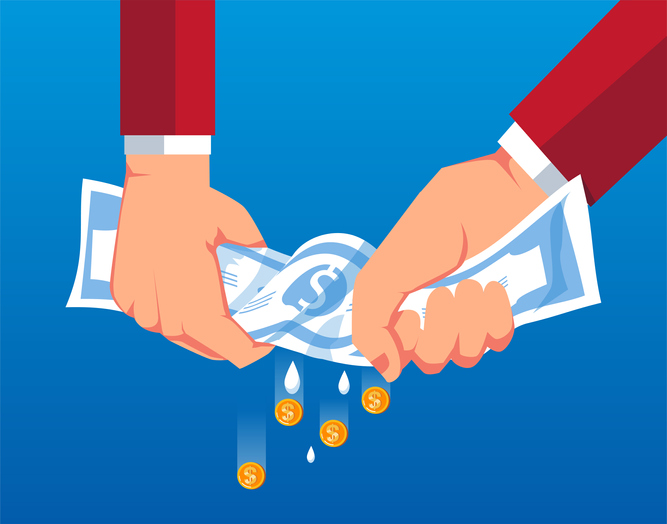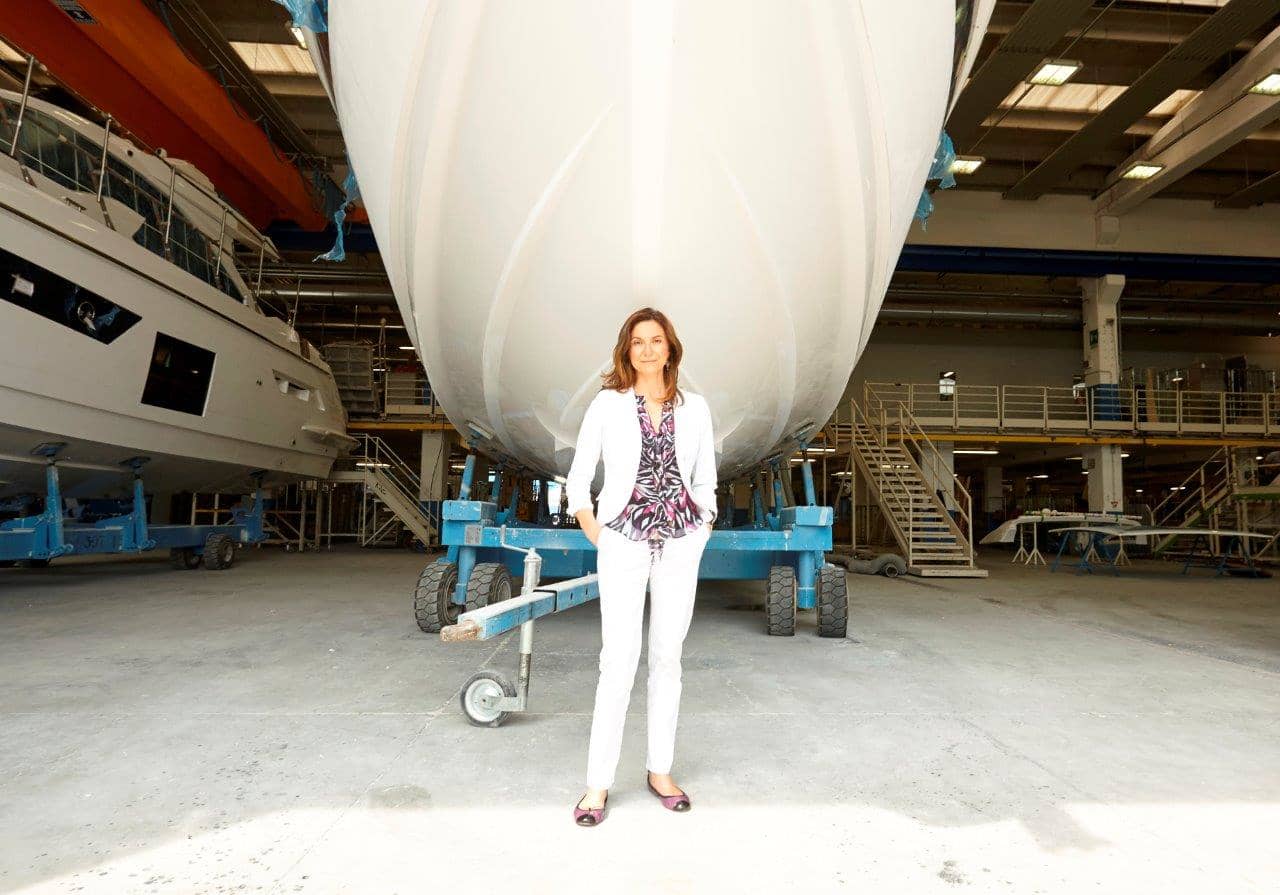Elon Musk, Other Leaders Sell Stock at Historic Levels
Insiders like the Waltons, Mark Zuckerberg and Google’s co-founders have sold $63.5 billion.
Company founders and leaders are unloading their stock at historic levels, with some selling shares in their businesses for the first time in years, amid soaring market valuations and ahead of possible changes in U.S. and some state tax laws.
So far this year, 48 top executives have collected more than $200 million each from stock sales, nearly four times the average number of insiders from 2016 through 2020, according to a Wall Street Journal analysis of data from the research firm InsiderScore.
The wave has included super sellers such as cosmetics billionaire Ronald Lauder and Google co-founders Larry Page and Sergey Brin, who have sold shares for the first time in four years or more as the economic recovery fueled strong growth in sales and profit. Other high-profile insiders—including the Walton family, heirs to the Walmart Inc. fortune, and Mark Zuckerberg, chief executive of Facebook parent Meta Platforms Inc.—have accelerated sales and are on track to break recent records for the number of shares they have sold.
Across the S&P 500, insiders have sold a record $63.5 billion in shares through November, a 50% increase from all of 2020, driven both by stock-market gains and an increase in sales by some big holders. The technology sector has led with $41 billion in sales across the entire market, up by more than a third, with a smaller amount but an even bigger increase in financial services.
“What you’re seeing is unprecedented” in recent years, said Daniel Taylor, an accounting professor at the University of Pennsylvania’s Wharton School who studies trading by executives and directors. He said 2021 marks the most sales he can recall by insiders in a decade, resembling waves of sales during the twilight of the early 2000s dot-com boom.
Insiders have a long history of selling at peaks and buying in troughs, Mr. Taylor said.
Investors sometimes worry that large sales by insiders mean they don’t expect significant further share-price increases, and big, unexpected sales can weigh on share prices. Companies often require top executives to hold stakes equivalent to several times their annual salary, but many high-profile executives easily exceed those thresholds even after selling.
Executives aren’t required to say why they sold, and few do. The heaviest selling came as lawmakers in Washington hashed out potential tax increases as part of the Democrats’ Build Back Better legislative package, at times considering raising the long-term capital-gains tax rate. In November, insiders unloaded a collective $15.59 billion.
The legislation, pending in the Senate, imposes a 5% tax on adjusted gross income above $10 million beginning in 2022, and another 3% on income over $25 million, including capital gains from stock sales. Congressional revenue estimates assume taxpayers will accelerate capital gains in 2021. Wealthy taxpayers could save up to $8 million in taxes on every $100 million of shares sold ahead of the effective date, Mr. Taylor said. Such potential tax savings have been “a powerful incentive to sell this year,” he said.
Tesla Inc. CEO Elon Musk, considered the world’s richest person, with a net worth of about $270 billion, ridiculed a proposed tax on billionaires’ unrealised capital gains, saying on Twitter that eventually the government runs “out of other people’s money and then they come for you.” He has moved to sell more than $10 billion in Tesla stock over about a month—including roughly $4 billion to cover tax withholding on option exercises—in his first sale of company shares since 2010, other than sales designated as made solely to satisfy tax-withholding obligations.
Microsoft Corp. CEO Satya Nadella last month sold half his total stake, for about $374 million before taxes. Analysts said the move could be related to Washington state instituting a 7% tax for long-term capital gains next year. A Microsoft spokesman said at the time that the sale was for “personal financial planning and diversification reasons.”
Another spike in insider-stock sales occurred in May when company leaders sold off $13.12 billion in shares, following strong corporate earnings reports.
The Journal examined data on company leaders’ stock transactions through Dec. 3, drawn from regulatory filings by InsiderScore. Sales marked as made solely to satisfy tax withholding requirements were excluded. Aggregate figures, through Nov. 30, exclude sales by major shareholders who aren’t also executives or directors.
About a dozen high-profile founders and CEOs sold millions of dollars in company shares this year after selling none in all of 2020, in several cases selling for the first time in five or 10 years.
Messrs. Page and Brin last sold stock in Google parent Alphabet Inc. at about $800 a share in 2017, according to InsiderScore. When they returned to the market in May, shares had risen to $2,200. This year, they have each sold nearly 600,000 shares for about $1.5 billion before taxes. Each still owns about 6% of Alphabet, according to FactSet.
The duo’s sales came as the company reported record revenues and profits more than doubled from a year earlier, and seven months after the Justice Department and state attorneys general filed a civil antitrust lawsuit against Google. The company’s share price reached an all-time high of $3,019.33 on Nov. 19, and has since pulled back to about $2,950.
An Alphabet spokesman declined to comment. Messrs. Brin and Page didn’t respond to a request for comment.
Mr. Lauder, the son of Estée Lauder Cos.’ founders, has shed just over two million shares this year, for more than $600 million before taxes in his first sales since 2016.
Dell Technologies Inc.’s Michael Dell and the Carlyle Group’s David Rubenstein also came off the sidelines over the past year. Mr. Dell sold five million shares for nearly $253 million before taxes, his first since taking Dell public again in 2018. Mr. Rubenstein sold 11 million shares this year for $495 million before taxes, after making his first-ever sale in November 2020. His sales have followed him stepping aside as co-CEO and transitioning into a role as co-chairman.
A spokesman for Mr. Lauder declined to comment. Spokespeople for Mr. Dell didn’t respond to requests for comment.
Other insiders continued selling but at a faster clip this year. The Walton family quadrupled the number of shares its members sold, receiving $6.5 billion before taxes so far in 2021, from $1.5 billion in 2020. The sales came in a year when Walmart’s share price flirted with all-time highs, and the company posted higher sales in three quarters.
Mr. Zuckerberg increased the number of Meta shares he sold nearly sevenfold from a year ago, collecting nearly $4.5 billion before taxes. His selling came as the company reported record sales and earnings, despite challenges presented by iPhone privacy changes and congressional hearings over harms from its platforms following the Journal’s Facebook Files series.
Walmart and Meta spokespeople said the sales are generally governed by preset trading plans. They said the Walton family’s proceeds help fund nonprofit initiatives, and Mr. Zuckerberg’s fund the Chan Zuckerberg Initiative LLC, his family’s for-profit philanthropic company.
Executives often sell shares under advance trading arrangements, dubbed 10b5-1 plans, that trigger sales on a fixed schedule or at price thresholds to avoid running afoul of insider-trading rules. The plans were used in almost two-thirds of stock sales last year—up from 30% in 2004—but some investors and regulators worry they can be abused. The Securities and Exchange Commission on Wednesday is scheduled to vote on a proposal that would change the rules governing the trading plans.
Finance executive Charles Schwab sold the most shares since 2015 in the company he founded, Charles Schwab Corp.: 5.3 million shares for $361 million.
“People are clearly being opportunistic,” said Ben Silverman, InsiderScore’s director of research. “These guys have been telling you all year that the market is overheated.”
Soaring stock prices mean some executives raised the same amount of money, or more, selling fewer shares. Snap Inc. CEO Evan Spiegel set a price target to sell between $60 and $80, receiving a total of $710 million before taxes on 10 million shares—more than doubling his 2020 proceeds despite selling three million fewer shares.
Amazon.com Inc. founder Jeff Bezos typically sells about $10 billion in stock annually to help fund his space venture, Blue Origin LLC. This year, he has sold 25% fewer shares while collecting roughly the same amount of money before taxes because the company’s share price has doubled over the past two years.
 Copyright 2020, Dow Jones & Company, Inc. All Rights Reserved Worldwide. LEARN MORE
Copyright 2020, Dow Jones & Company, Inc. All Rights Reserved Worldwide. LEARN MORE
This stylish family home combines a classic palette and finishes with a flexible floorplan
Just 55 minutes from Sydney, make this your creative getaway located in the majestic Hawkesbury region.
Continued stagflation and cost of living pressures are causing couples to think twice about starting a family, new data has revealed, with long term impacts expected
Australia is in the midst of a ‘baby recession’ with preliminary estimates showing the number of births in 2023 fell by more than four percent to the lowest level since 2006, according to KPMG. The consultancy firm says this reflects the impact of cost-of-living pressures on the feasibility of younger Australians starting a family.
KPMG estimates that 289,100 babies were born in 2023. This compares to 300,684 babies in 2022 and 309,996 in 2021, according to the Australian Bureau of Statistics (ABS). KPMG urban economist Terry Rawnsley said weak economic growth often leads to a reduced number of births. In 2023, ABS data shows gross domestic product (GDP) fell to 1.5 percent. Despite the population growing by 2.5 percent in 2023, GDP on a per capita basis went into negative territory, down one percent over the 12 months.
“Birth rates provide insight into long-term population growth as well as the current confidence of Australian families,” said Mr Rawnsley. “We haven’t seen such a sharp drop in births in Australia since the period of economic stagflation in the 1970s, which coincided with the initial widespread adoption of the contraceptive pill.”
Mr Rawnsley said many Australian couples delayed starting a family while the pandemic played out in 2020. The number of births fell from 305,832 in 2019 to 294,369 in 2020. Then in 2021, strong employment and vast amounts of stimulus money, along with high household savings due to lockdowns, gave couples better financial means to have a baby. This led to a rebound in births.
However, the re-opening of the global economy in 2022 led to soaring inflation. By the start of 2023, the Australian consumer price index (CPI) had risen to its highest level since 1990 at 7.8 percent per annum. By that stage, the Reserve Bank had already commenced an aggressive rate-hiking strategy to fight inflation and had raised the cash rate every month between May and December 2022.
Five more rate hikes during 2023 put further pressure on couples with mortgages and put the brakes on family formation. “This combination of the pandemic and rapid economic changes explains the spike and subsequent sharp decline in birth rates we have observed over the past four years,” Mr Rawnsley said.
The impact of high costs of living on couples’ decision to have a baby is highlighted in births data for the capital cities. KPMG estimates there were 60,860 births in Sydney in 2023, down 8.6 percent from 2019. There were 56,270 births in Melbourne, down 7.3 percent. In Perth, there were 25,020 births, down 6 percent, while in Brisbane there were 30,250 births, down 4.3 percent. Canberra was the only capital city where there was no fall in the number of births in 2023 compared to 2019.
“CPI growth in Canberra has been slightly subdued compared to that in other major cities, and the economic outlook has remained strong,” Mr Rawnsley said. “This means families have not been hurting as much as those in other capital cities, and in turn, we’ve seen a stabilisation of births in the ACT.”
This stylish family home combines a classic palette and finishes with a flexible floorplan
Just 55 minutes from Sydney, make this your creative getaway located in the majestic Hawkesbury region.






















